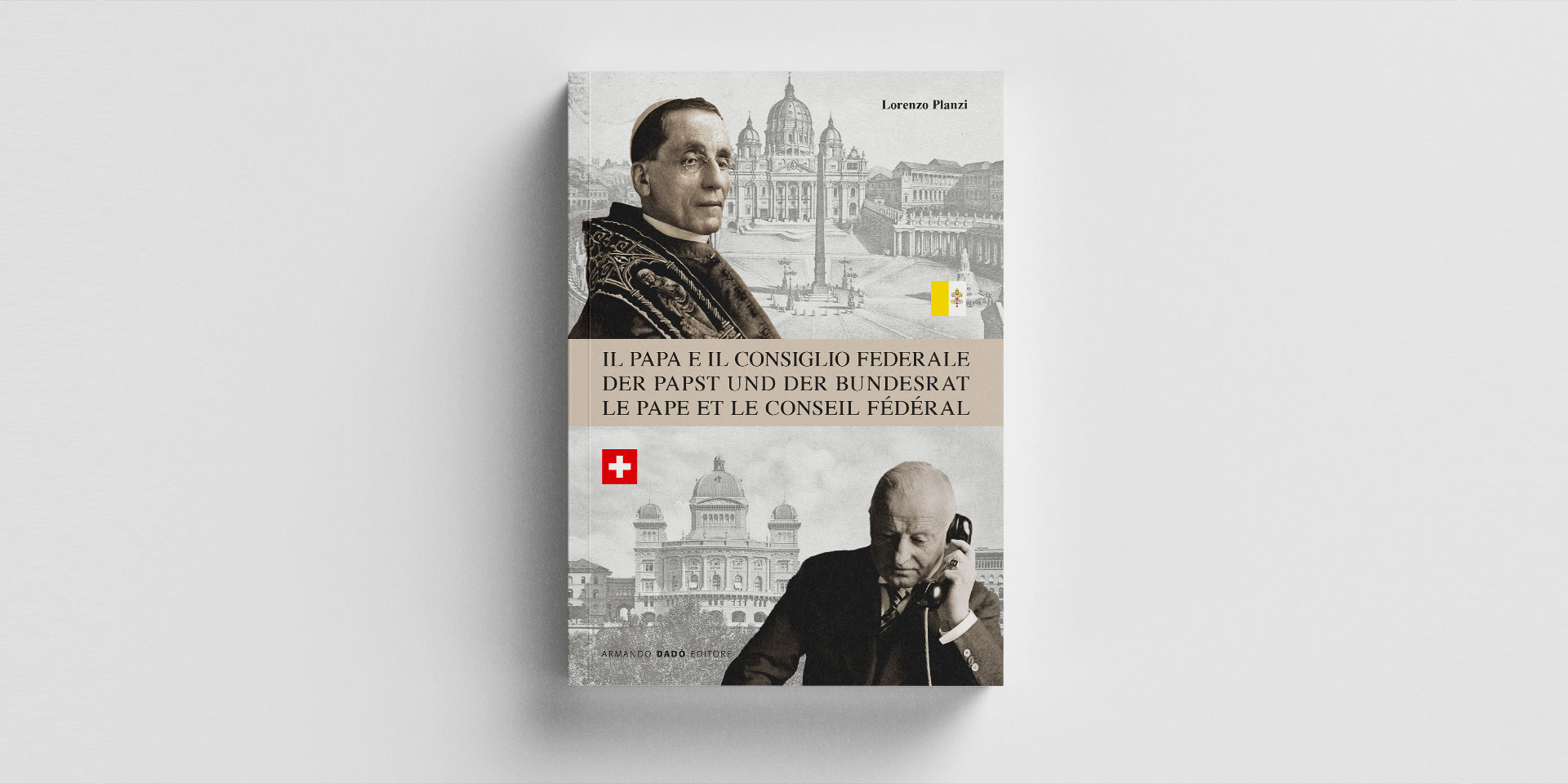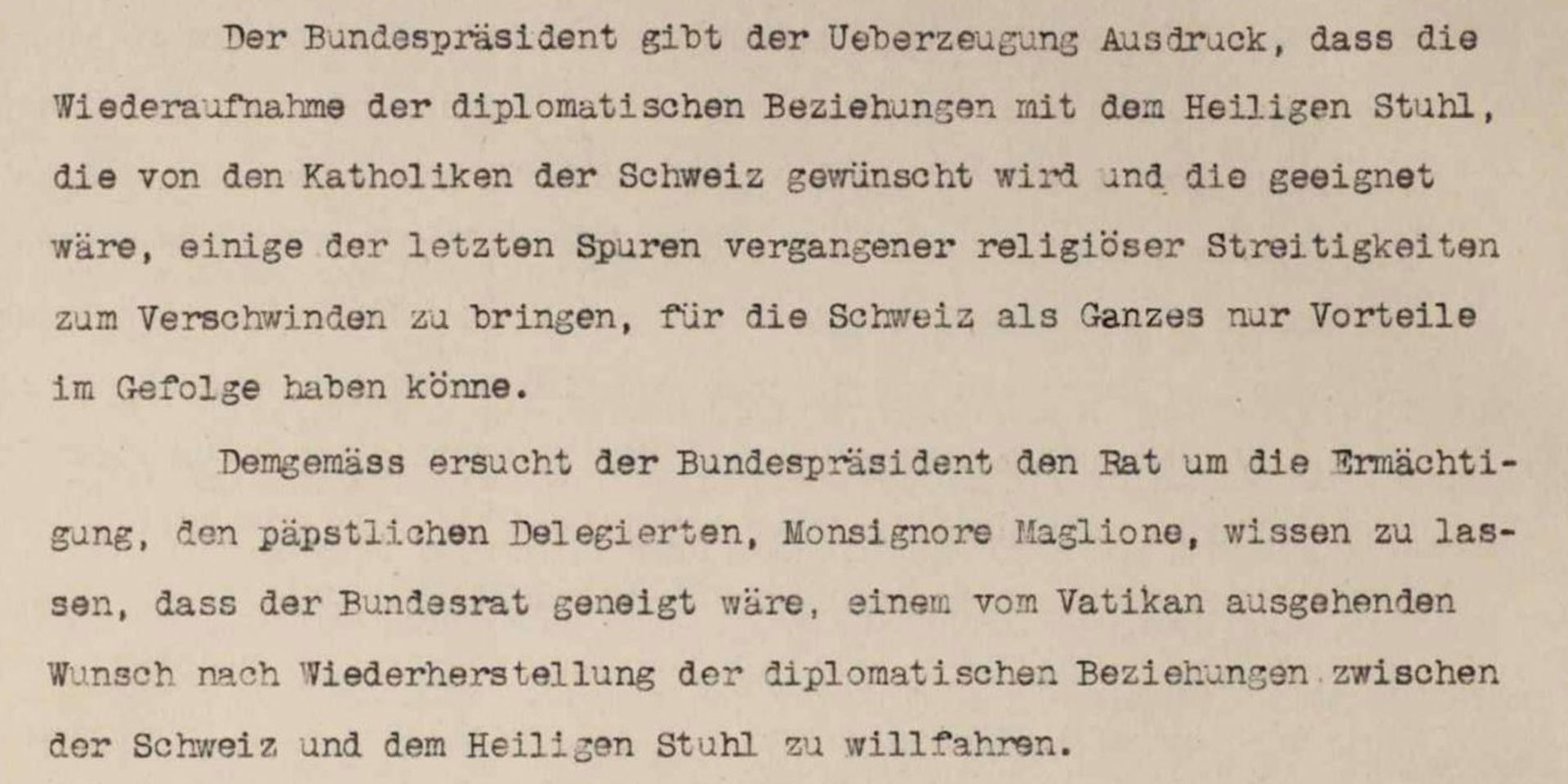The Pontifical Swiss Guard: poised between history and new projects
Switzerland has decided to offer financial support to help renovate the barracks of the Pontifical Swiss Guard. The contribution comes in the light of the 100th anniversary of the resumption of diplomatic relations between Switzerland and the Vatican, and offers the perfect opportunity to learn more about the renovation project as well as about life in this multilingual corps that is also the world's smallest army.
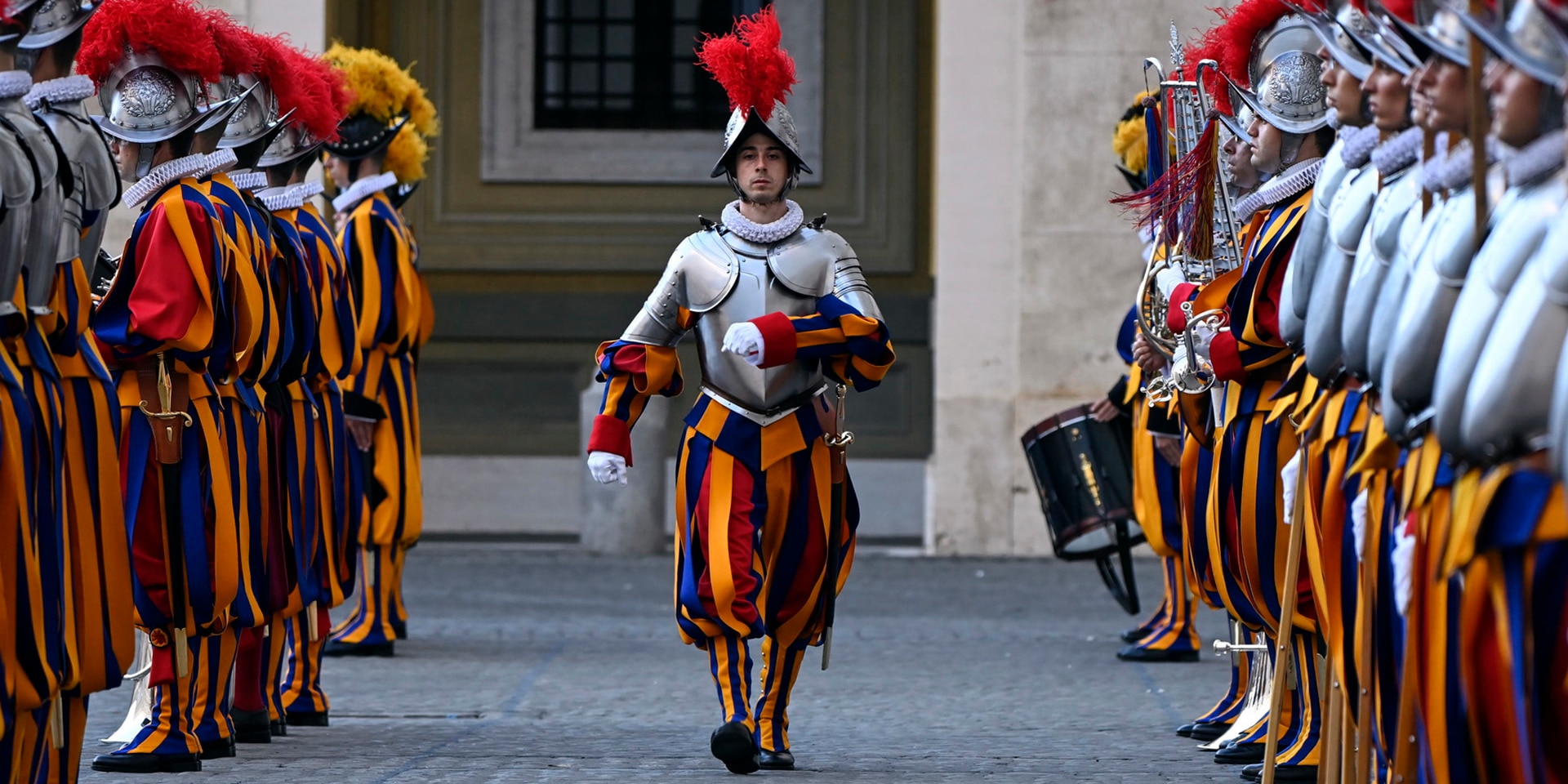
The Swiss Guard celebrates its swearing-in ceremony every year on 6 May in memory of the guards who died defending the Pope in the Sack of Rome in 1527. © Keystone
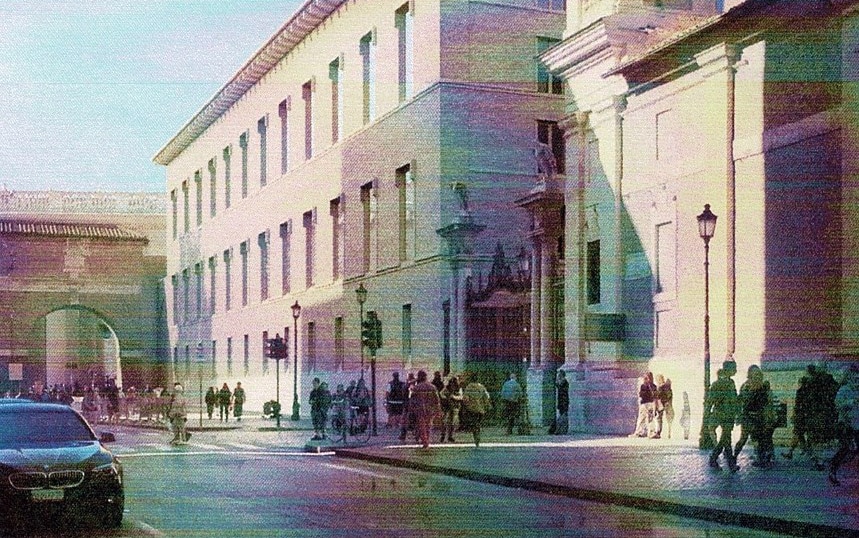
There have been books, exhibitions, documentaries and even a comic book dedicated to the Swiss Guard. Known as the world's smallest army, its history offers plenty to discover. For more than 500 years, it has provided an important link between Switzerland and the Vatican. The Federal Council has decided to contribute CHF 5 million to the ongoing project to renovate the barracks of the Swiss Guard – a decision that allows us to reflect on a few moments in the force's history and hear about the lives of its multilingual cohort of new recruits.
A new barracks to meet the needs of an evolving army
The existing buildings that make up the barracks date back to the 19th century, and require renovation since they no longer meet modern standards for accommodation, living conditions, or environmental sustainability and ecology. In addition, Pope Francis decided to increase the guard of 110 people to 135 Papal Guards. "On 2 October 2020, a project for a new barracks was presented to Pope Francis. It was the result of a collaboration between a Swiss foundation and the competent Vatican services. The project was then officially submitted to Cardinal Pietro Parolin, the Vatican Secretary of State, who has overall responsibility for the Swiss Guard. Work is scheduled to begin in 2023 and the inauguration of the new structure is planned for 6 May 2027, in time for the ceremony marking 500 years since the Sack of Rome," explains Jean-Pierre Roth, President of the Foundation for the Renovation of the Barracks of the Papal Swiss Guard in the Vatican.
'Acriter et fideliter' - Fiercely and Faithfully
These changes to the existing structure offer an opportunity to delve into the history of the Swiss Guard, who for some 514 years have protected the pontiff and his residence under the motto 'Acriter et fideliter' (Fiercely and Faithfully). In 1506, 150 soldiers arrived in the Vatican, where they were blessed by Pope Julius II and the Pontifical Swiss Guard was officially established.
Work on the new barracks will be carried out by Swiss architectural firms and will also showcase the 'Passetto', an 800m-long elevated passage that connects the Apostolic Palace to Castel Sant'Angelo, where the Pope could escape if he found himself in danger. A key date in the Passetto's history is 1527, when Pope Clement VII crossed the passage during the Sack of Rome and 147 Swiss Guards died to protect him.
A section of the Via Francigena, which has connected Canterbury to St Peter's Square in Rome since the 11th century, will also be upgraded. In 1506 the first Swiss Guards travelled a stretch of this road, almost 800 km long, from the old Confederation to Rome.
Though it is an army that is strongly rooted in the past, the Swiss Guard is also evolving. Indeed, the new barracks will also reflect the changes in a force that is keeping pace with the times and is also speaking the four Swiss national languages. This year, 38 new recruits from all four of Switzerland's language regions were sworn in to the Swiss Guard.
Service, communal life and multilingualism
When the word 'barracks' is mentioned, one immediately thinks of a military building. But the new home of the Swiss Guard won't contain military equipment or vehicles. Instead, the barracks will meet the needs of its residents. Indeed, Pope Francis wanted the guards to have more space and to be able to move with their families into specially furnished flats. Currently, many families have to look for accommodation outside the neighbourhood due to lack of space.
It is certainly a privilege to live in the Swiss quarters, inside the Vatican: A previous chaplain of the corps addressed those words to the future wife of one of the Swiss guards: marrying a Swiss Guard also means accepting the entire corps and the whole activities contained within it. He thus referred to the services and community life which are an integral part of the everyday life of the Swiss Guard. As he is always available for both regular and extraordinary services, it often occurs that the husband is absent and, even on holidays such as Christmas or Easter, can only celebrate with his family after the service. "With our service we enable the Pope to celebrate the ceremony in safety and at the same time we create the possibility for the people to see and experience him. These encounters are truly special. The families of the Swiss Guardsmen also live in the barracks and are therefore an integral part of the community. They meet on the way to school, in their neighbourhoods or for joint celebrations. I am thinking of the St. Nicholas' Day celebration, the Christmas party or the mission celebration together, as well as the summer barbecues in the courtyard of honour. Unfortunately, this year everything is different because of COVID-19. But I hope that we can resume this community life soon and safely," says officer Urs Breitenmoser.
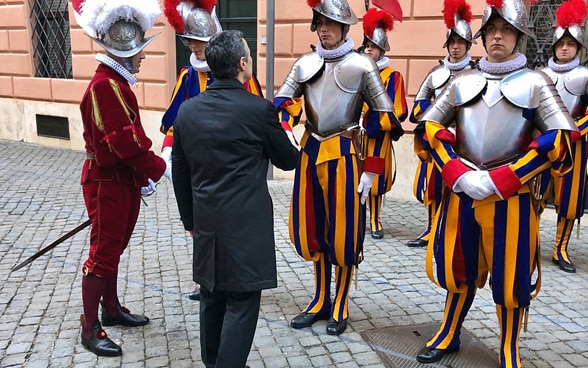
In the Pontifical Swiss Guard, military orders are given in German. "Every Swiss Guard brings his own language with him when he joins the corps. In addition to this, he will have to learn Italian as quickly as possible. We always strive to adapt to others and find a common language. The daily conversations with people who have travelled to Rome from around the world to meet the Pope are tremendously enriching," Sergeant Breitenmoser adds. Every member of the corps is proud to represent his own language region. "This is also true of the Romansh-speaking Guards who choose to take the oath on 6 May in Switzerland's fourth national language," Breitenmoser explains.
Many young Swiss soldiers entered the corps despite the numerous difficulties posed by the pandemic. The challenges they face are significant: they are far from home and find themselves confronted with a new language, culture and experience in a foreign country. "Many of them have left behind small villages in Switzerland to immerse themselves in the great caput mundi. Despite the homesickness some of them may feel, serving the Pope is a unique and enriching life experience. After two years they unquestionably return home more mature, confident, and confirmed in their faith," Sergeant Breitenmoser concludes.
Centenary of the resumption of diplomatic relations
2020 marks the 100 years since Switzerland and the Holy See resumed diplomatic relations, having broken them off between 1873 and 1920 in the wake of the Kulturkampf. Throughout this period, however, the Pontifical Swiss Guard continued to fulfil its duty to protect the Pope. Aside from the Swiss Guard, bilateral relations between Switzerland and the Vatican also focus on promoting peace in the world.

